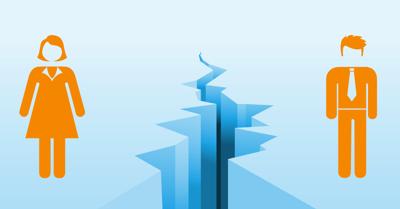Ethiopia has been named as one of the most improved countries in the world in reducing gender gaps, according to the 2020 World Economic Forum’s Global Gender Gap Report.
The latest World Economic Forum Report on Thursday stated that Ethiopia has significantly improved gender gaps in various areas.
The Global Gender Gap Report 2020 benchmarked 153 countries on their progress towards gender parity in four areas: Economic Participation and Opportunity, Educational Attainment, Health and Survival, and Political Empowerment.
Furthermore, this year’s report also examined gender gap prospects in the professions of the future.
Accordingly, the report puts Ethiopia along with Albania, Mali, Mexico, and Spain as four countries that improved the status of women at the national level.
“Even though it will take another 99.5 years to achieve global gender equality, the 2019 findings mean many of us will not see full gender parity in our lifetime, although it was an improvement on the 108 years to reach parity as cited in the 2018 index,” according to an annual report by the World Economic Forum (WEF).
“For now, many women in the region continue to face limitations of basic rights, including in divorce, inheritance, asset ownership, access to justice, and freedom of movement”.
“In fact, there are still 72 countries where women are barred from opening bank accounts or obtaining credit. And in the last 50 years, 85 states have had no female leaders. Without representing one-half of the population in national and local politics, progress will be stymied in other areas pertinent to women and the quest for gender parity,” the WEF warned.
“The most improved countries were Albania, Ethiopia, Mali, Mexico, and Spain, with each having seen an increased presence of women in their political institutions.’’ the WEF report pointed out.
The Global Gender Gap Report 2020 put Iceland on the top spot for 11 years in a row, having closed nearly 88% of its overall gender gap and has continued to improve on last year’s rankings. It has completely closed its gaps in education and health and survival.
Iceland remains the top performer for political empowerment, having had a female leader for the 22 of the last 50 years. Women make up 38% of Iceland’s parliament and 40% of its ministers.
In addition, women account for 42% of its senior officials and 43% of companies’ board members.
Iceland was followed by other Nordic countries such as Norway, Finland, and Sweden, with each improving on gender equality in the world of politics.
MG/abj/APA


